Move Fast and Break People Part 3: Asshole Monoculture
While we're replacing real life with the internet, why not flood the zeitgeist with monstrous anti-heroes who get proven right in the end?
Note: Welcome to WTG’s first multi-part series! As promised, this Substack will now post regularly, at least twice a month. Normally, the way this works is that every public essay has a follow-up piece for paid subscribers that gets into things I ran out of space for or are too spicy to deal with the inevitable sea-lions in the comments.
But as I worked on this series, I really didn’t want to put any of it under a paywall. It’s one of the biggest things I’ve tried to say outside of fiction, and, given the enormity of everything we’re going through, I wanted anyone to be able to read it in perpetuity. I wanted to discuss it with anyone. Unfortunately for us all, I also want to eat and stay warm and feed my family. So, just for this series, each part will go up for paid subscribers only for 24 hours, and then I’ll open it publicly and keep it that way.
Move Fast and Break People Part 1: How The Internet Gave Us the World—And Took It All Away is unlocked and free to all.
Move Fast and Break People Part 2: Everyone’s Third Place is unlocked and free to all.
Move Fast and Break People Part 3: Asshole Monoculture is unlocked and free to all.
Addendum: due to recent & upcoming changes over at Patreon, I and many creators have taken a serious hit to our income. Truly, believe me when I tell you I hate doing this with every ounce of my dumb little soul, but despite how badly we are all suffering right now, I’d ask you to please consider signing up (here or there—but if there, only do so through your browser, not the app) for a paid subscription if you value you what I do, so that I can keep doing it while feeding my kid and having a roof over our heads.
Welcome back to your nuclear hellscape of infinite human torment already in progress! What a fucking beautiful day in the goddamned cursed-ass neighborhood of slowly-deflating dreams, in which the very concept of hope is being pilloried daily in every town square. King Friday just sent a kindergartner to a Salvadorean prison, then slept the guiltless, unperturbed sleep of a baby.
IT’S GREAT HERE. Did you know hell always had the option of adding more rings? That franchise opportunities for torment-expansion and new items on the Value Menu of Breathtaking Moral Putrescence was just…always on the table for us? NEAT FACT!
We last left our dingus century slowly burgeoning into a digital technocracy and blundering through the long process of kicking down fundamental pillars of civilization, replacing them all with apps, and expecting the overall structure to stay totally fine and cool and never, ever wobble despite no one taking care of it, at all, in any way.
But that wasn’t enough for us, oh no. We are such very clever, super rad, bold and edgy futuremonkeys. So we started kicking it, too.
Just a little bit. Not because we hated the basic structure of interconnected human systems. Because most of us never really understood anything about the basic structure of interconnected human systems. The particular pillars we were whacking on weren’t exactly obviously load-bearing. In fact, for quite a long time, a little vigorous boot-smacking seemed to improve things. And a bunch of people who confidently said they did understand those structures insisted it wasn’t kicking, it was industry disruption, and hey, who doesn’t love disrupting nasty fat greedy old industry? Yeah, fuck the system, give it a roundhouse this time!
So when, eventually, the janky societal stud-finder that is the American Electoral Cycle started coming up catastrophically empty, we’d spent so long saying fuck the system and getting rapturous, deafening cheers for it (and absolutely nothing but acidic disdain for maybe system good just need fix?) we never should have been surprised to find the system, well, totally fucked.
This essay concerns one of those not-obviously-integral societal pillars: trends in fictional televisual storytelling. OH WE GETTING HOT NOW.
No, but we kind of are. Everything we thought and taught about these two things was changing throughout the first quarter of the 21st century, converging on a new consensus at the exact same time as people slowly learning how much they genuinely enjoyed not having to deal with other human beings for every little thing and not thinking too hard about how the bedrock definition of society is human beings having to deal with other human beings for every little thing.
The thing is, the kinds of stories we take in on a daily basis and the professions we choose to pursue are enormous, broad-sweeping cultural movements. The issues this series is trying to address, concerning the dominance of the internet and digital living, are not uniformly experienced. How much or how little daily life has been made physically intangible varies from person to person, country to country. (And of course, all these thoughts are heavy on the American landscape because…well, the American landscape has been weaponized against both itself and everyone else plus I live here.) A large rural family, to whose address Instacart delivers only thoughts and prayers, does not have the same relationship with the internet, or daily direct human interaction quotients, that a single, WFH, recent college graduate living in a major test-market city does.
But they’ve all heard that Iron Man is a badass.
Here’s the lede, unburied above the fold: I’m not saying Tony Soprano ended the American experiment. That’s just silliness.
But I’m not not saying Tony Soprano ended the American experiment, either.
This whole digression started because a friend and I were talking about politics (it’s like doomscrolling! But you do it in person, and maybe there is whiskey, and maybe there is yelling, but yelling together, and at least probably also no one calls you a shitlib) and they asked: how could anyone think these assholes were actually going to be effective at solving any problems? I just don’t get how you can even trick yourself into thinking these are the guys, even if you’re a very devoted Nazi.
And I knee-jerk answered:
Oh, that’s easy! Because we’ve spent the last quarter-fucking-century consuming virtually infinite movies, shows, games, and books in which the Asshole Anti-hero is the only guy who can cut through all the bullshit and get the job done. Then we told everyone growing up or coming of age during that time not to study the humanities or they were a stupid waste of flesh destined to starve to death in a ditch, so they couldn’t think critically about any of it.
If you didn’t experience the pre-2K media environment in real time, it’s hard to express the size and depth of the sea change I’m talking about here. From the advent of mainstream televisual entertainment in the 20s and 30s up through the very late 90s, the heroes of major tentpole media units were many things, but they were almost always…you know…heroes. All narrative has a moral agenda, and while yes, a big part of the 20th century moral agenda was sit down and shut up if you’re not a straight white man or else, for straight white men themselves, the moral lessons of film and television was very much centered on a kind of post-doc Sunday School hey, I know you have this rage without form or focus inside you all the time, but have you considered being a good person about it? Here’s how!
The heroes of the stories America most liked to tell about its Golden Children were never screaming fucking sociopaths quipping the day away cleverly, clothed in the the tattered shreds of the lives they’ve carelessly destroyed, for whom everything more or less works out, even when they die, because when and if they do eat it, their worldview is almost always upheld, and their nihilistic dog-eat-dog death forms a supporting argument, or at least an emphatic underline, for their nihilistic dog-eat-dog way of life, Mr. I-Am-the-One-Who-Knocks SIR.
Before you hop on the comment section to note well, actually The Screaming Fucking Sociopath Show ran from 1971-1974 on CBS—look, there’s never 0% or 100% in media analysis, there’s always exceptions and outliers. GENERAL TRENDS, PEOPLE. Plus, on the rare occasion that an unutterable nightmare of human psychology was the protagonist of a movie or show, that was the point of the story, and they weren’t rewarded for it. For all Hollywood’s heavy breathing over the Italian mafia in the 1970s, Al Capone still dies in prison unloved and unmourned, and hubris was still a fatal flaw instead of a singularly required virtue. While the beginning of the douche-as-imperfect-but-semi-lovable-hero genre might have started with shows like The Simpsons or Married With Children or literally anything Martin Scorsese ever touched, Homer and Al are not effective at life, they aren’t right about very much, most people around them don’t really like them, and a huge number of plot points revolve around the Dipshit In Question learning some kind of basically pro-social lesson.
Pre-1999ish, monstrous, dick-swinging assholes and their tediously identical personal philosophies about how the whole system, whatever the system in question is, should be replaced with the hypnotic motions of that selfsame swinging dick, weren’t often presented, shot, or reacted to by others as attractive, or delightful, or highly competent, or posited as maybe actually a legitimate way to conduct yourself in real life. And the horrifying, violent, anti-social, hate-pickled soul-amputee didn’t regularly end up being pretty much right all along while regular people just moving through life trying to mostly do the right thing are lame suckers or even hateful bitches who exist only to be fodder for or obstacles to This Fucking Guy’s big plans because that’s a fucking crazy thing to embed in the brains of a traumatized post-two-different-world-wars population.
It might not seem important. It might not seem like it could really make much of a difference. But our brains crave stories and the stories those brains gorge on become the way those brains expect life to work, at least on some level. Millions upon millions of people spend more focused, intentional time with their favorite OMG SO BINGEABLE movie and TV show characters than they do with anyone but their actual immediate families, and for many, many more, the math may not actually come out in favor of family. That’s a tremendous amount of influence, whose hypnotic immersion doesn’t even break for commercials anymore. So when the most common archetype of the Successful and Effective HeroMan fundamentally changes, what people expect to find when they go looking for successful effectiveness also changes. Mr. Smith going to Washington starts to look like a gormless boring weirdo who doesn’t remotely understand what’s Really Going On and is defending a shitty system anyway so why root for him? Now, Walter White, Don Draper, Tony Stark, Patrick Bateman, Jack Bauer, Tyler Durden? Jaime/any Lannister, Jordan Belfort? Those guys are so fun—and they get shit done.
This isn’t a post-9/11 nihilism thing, either, though it ramped up a lot after that. I glibly blamed it on Tony Soprano, but that’s not really wrong. Oz has a real claim to starting the trend in 1997, but few shows have ever had the mainstream in the palm of their hand the way The Sopranos did from 1999-2007, and it was Ground Zero for the Age of the Rewarded Asshole.
1999-2001 saw an absolute supernova of televisual stories whose protagonists were dark, edgy, violent, cruel, angry at “the system” (always for denying them the status and rewards they’re clearly owed, never for the specific flaws of that system), totally without empathy, disrespectful and obnoxious to everyone around them, narcissistic, and 24/7 surly without for one second not being the absolute hero of their stories—Fight Club, The Matrix, Boondock Saints, 24, Boiler Room, American Psycho, Dark City, Memento, Snatch, Angel, even comedies like Pushing Tin, Futurama (don’t @ me, I love that show but they’re all assholes), Family Guy, High Fidelity, Black Books, The fucking Man Show…and yes, even my beloved Farscape. Because you could be pretty sure that if the hero wasn’t a complete dickwagon, the rest of the story was gonna work real hard to make you love the villain, think they’re WAY cooler than the heroes, and feel bad for their poor widdle hurt villanous feewings.
Suddenly there was a whole crop of assholes running around being pretty damned successful at solving problems, where before THE archetype of even the Complicated Hero was a basically decent guy put upon by life and doing his best to make the moral choice in an unfeeling universe.
And then, saints and ministers of grace defend us, there’s The Phantom Menace. George Lucas created from the definitional SpaceGood vs. SpaceEvil clear-cut heroic trilogy where decent people try real hard to make decent choices and it works, in the 70s, when nothing was clear-cut or very heroic. Then, before anyone had anything bad to say about Star Wars, spent the entire first decade of the new century spending hundreds of millions and bending everything he’d ever done into unloosesable narrative knots, all to make us love and empathize with Darth Ever-Fucking Vader because reasons. And then Disney built the sequels and almost all their sequel-merchandising around Han and Leia’s psychotic dirtbag homo/geno/patri/regi/avunculi/arguably matricidal son as some kind of “blood-drenched fascism is fine if you’re hot and tortured while you do it” brooding hero and it worked. (not to make a thesis out of it, but the only reason any of these brooding heroes brood at all is that people just inexplicably refuse to treat them with the deference and awe they’re owed by their very nature. Probably because people are bad and need to be punished into worshipful adoration. That sounds right, doesn’t it? It also sounds like a certain voting bloc’s bedrock policy complaint.)
And all those movies were ostensibly aimed at kids. Whose moralities were under construction, excuse the mess.
It’s like there was a meeting and we all just decided good people are boring and stupid and we wanted to hear way less of them for the foreseeable future.
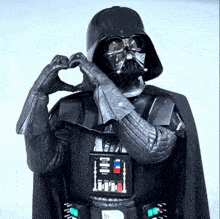
There was another huge explosion of this in 2008-10, not coincidentally as Obama was elected, the shadow of Bush/Cheney, a decade of war, fear, and disastrous Wall Street auto-fellatio seemed to be lifting. A good dude was in the White House, so no need to push hard on stories about doing the right thing to attempt some kind of pressure on the powers that be to maybe think about not being shrieking beholders all the time. It was definitely time to shove our faces right down into Bad People Fiction like a pile of freesia-scented cocaine. Breaking Bad, The Dark Knight, Mad Men, Sons of Anarchy, Archer, Fringe, Luther, Iron Man, Sideways, Inglorious Basterds, Inception (and also everything Christopher Nolan has ever done), on and on.
Gen X had a lot going on. Just…a significant number of issues to work through.
And these heroes are literally all the same person. “Morally grey” always means the same guy is about to fart his way into your psyche.
SEE IF THIS SLUDGE RINGS A SHITBELL:
Doing pretty solidly at life within the parameters of the socio-economic class to which they belong, but hasn’t gotten to the tippy-top of that class, either, for reasons the story insists are beyond their control.
Either extremely physically attractive or conspicuously not attractive whatsoever, yet possessing a seriously obscene amount of weird, cruel charisma/affability that comes out most entertainingly during his worst actions
A consistent garbage asshole to any wife, family, social circle, and co-workers, who gives nothing back for the mountain of love, grace, patience, time, money, and favors showered upon him, yet somehow the shower never ends because occasionally he shows reluctant affection to a child or animal or the memory of a dead wife. Maybe a sled, idk.
Hates the system, man. What system? It doesn’t matter, he hates it and he’s gonna bring it down. And he’s not gonna do it by being a good boy, no way! Fuck you, DAD! He’s gonna do it with a bunch of crazy shit that looks suspiciously like just acting on your id 100% of the time but totes isn’t that, promise. Whatever plans he has to get rid of the old system or building a new one are nebulous at best, the point is SYSTEM BAD, SYSTEM DOWN, MAN AWESOME. He’s so edgy and cool! He says things you’re not supposed to! He’s above the law! You want him to be above the law because that’s the only way the story continues so FUCK YOU, LAW. And when he does his cool violence the audience isn’t supposed to have uncomfortable feelings about it the way they normally would if anyone else did them, because having uncomfortable feelings about things is just another part of the system, my dudes.
Because it’s so entertaining, the story has now taught you to fucking hate anyone who stands in the way of this super cool swaggerboss, even if they’re doing that by committing such heinous acts as…asking any questions at all of Broody Mclotsadrugs or politely offering an alternative course of action to Bigjaw Gruntybear’s “fuck everyone who isn’t me” plan.
Because, you see, the normal rules just don’t apply to this zomg so cool and fuckable and powerful lone rebel, vessel of dgaf masculinity and mechanism of applying irrationality to rational life that he is! Normal rules would actually be taking something ineffable away from him, damaging his soul, making him less of a man, nay, less of a human.
Has zero hesitation about hurting people (physically, mentally, emotionally, financially, socially, etc depending on genre) to achieve their goals, in fact, profoundly believes their goals are unachievable without hurting people. The story itself usually revolves around incredibly vivid and creative expressions of that hurt, without depicting the aftermath. The story rarely presents any other workable means of achieving the protagonist’s goals, ultimately proving him right without having to say so and letting all the creators do a Dr. Evil pinky-smirk about how they never meant these characters to be attractive role models admired by millions.
White dude, because obviously we get super uncomfy when any other kind of human acts like this. Straightness may or may not wobble, but if wobble, must wobble at a decidedly masc angle.
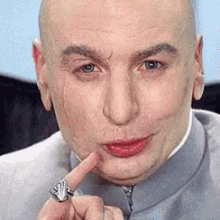
Now, it’s never been so concentrated in slower media like books and plays, other trends were also going on, and certainly, in recent years the trend has recoiled a bit in the face of this shit not turning out to be so thrillingly fun in real life, but the visual (i.e. easiest to consume) storytelling landscape of the 21st century was colonized by assholes to a truly clownshoes and their accompanying clownstockings degree. By the end of the aughts, the vast majority of stories committed to film involved some kind of anti-hero, and they were almost always proven effective at their goals in the end, often the only people who could accomplish them, and only by their chosen means. Those means might look insane at first, but they always prove more, or at least more quickly, effective than being good and moral. And then Game of Thrones premiered!
Even Michael Scott was repeatedly shown to be the best salesmen in the company despite his horrible behavior and clear idiocy. (So we get the “even an idiot asshole is more effective at the same job than a competent person” narrative in the most popular comedy of its decade) And Ron Swanson, much as I love him, was regularly a totally heinous shit to everyone around him, at times even approaching malevolent sabotage of the entire local government apparatus simply because it is the government apparatus. And the show made it, and his school of pug-nosed libertarianism, so endearing and cool people were actively disappointed when he grew and evolved. The Marvel movies are absolutely chock full of horrifying narcissists, now with SWEET BRANDING AND MERCHANDISE.
Of course, there’d always been bad people and complicated protagonists—noir wouldn’t exist otherwise. But usually, especially in the period betwen the end of WW2 and the end of the Cold War, when America felt the need to at least appear morally upright to contrast with those nasty communists, those guys got some kind of comeuppance. Citizen Kane still dies alone and unloved, no matter how sick his sled was when he was 8. Michael Corleone doesn’t exactly have a nice time, and his methodologies become obsolete almost as soon as the sequel rolls film. Most people involved in noir stories end up face down in a pool of their own consequences.
The difference wasn’t necessarily that obnoxious bullies were in media, but that they suddenly were the heroes we needed.
Because they always won, even though they had to suffer through one or two Good Person DEI Hires on the way. They always win even when they die in the end. Yeah, Walter White ate it…in the series finale, in very epic fashion, after accomplishing literally all of his goals, none of which were ever “be a nice family man people enjoy spending time with.”
And that’s without even mentioning Reality TV, the Skinnerian Box that disgorged Donald Trump’s final form, in which the villains very often triumphed, and the promise of cruelty meant a great episode.
The worst part is, nobody telling these stories was necessarily doing anything wrong or bad. This was a new(ish) way to tell stories to a massive worldwide mainstream audience in a world with precious few of those. It was exciting and fresh and so fun to write, to act, even more fun to watch and discuss. We liked watching it because it was made to be liked. We liked making it because it feels good to make art that feels challenging and dangerous.
Unfortunately, it also trained us, over the course of almost three decades, to see slick monsters as necessary heroes, victims as suckers, and the smashing of all systems as inherently moral and FUCKIN’ BADASS, no matter what the qualities of the system itself.
Which had also, not coincidentally, been the underlying message of most of the heroes of the previous generation—they were rarely out-and-out psychopaths and monsters, but almost all of them were edgy outsiders with contempt for “normie” life, who could eat 50 eggs, who couldn’t forget about Chinatown, who made offers that couldn’t be refused, who always wanted to be a gangster, as far back as they could remember. Boomer media is FULL of guys raging against the system and being totally unsatisfied with even the richest rewards of that system. That the system existed was enough reason to hate it and punch it in the face while laughing at the dumb rubes who just wanted to have an okay normal time in life and maybe a job. Right or left, it didn’t and doesn’t matter, the only unforgiveable sin, artistically and politically, for the last thirty years, has been to be seen as part of, beholden to, or standing up for any tiny sliver of, any kind of established societal system.
Was it really any wonder no one cared about defending the system by the time we crawled over broken glass to 2025?
After all, the angry, unpleasant, rude, anti-social, obnoxious, violent, capricious, sadistic, unrefined, swaggering, totally emotionally unregulated anti-protagonist who blasts through everyone else like a demented Kool-Aid man always turns out to be right, or at least, the very coolest one of us all.
At least, that’s what I’ve heard. FOR MY ENTIRE ADULT LIFE.

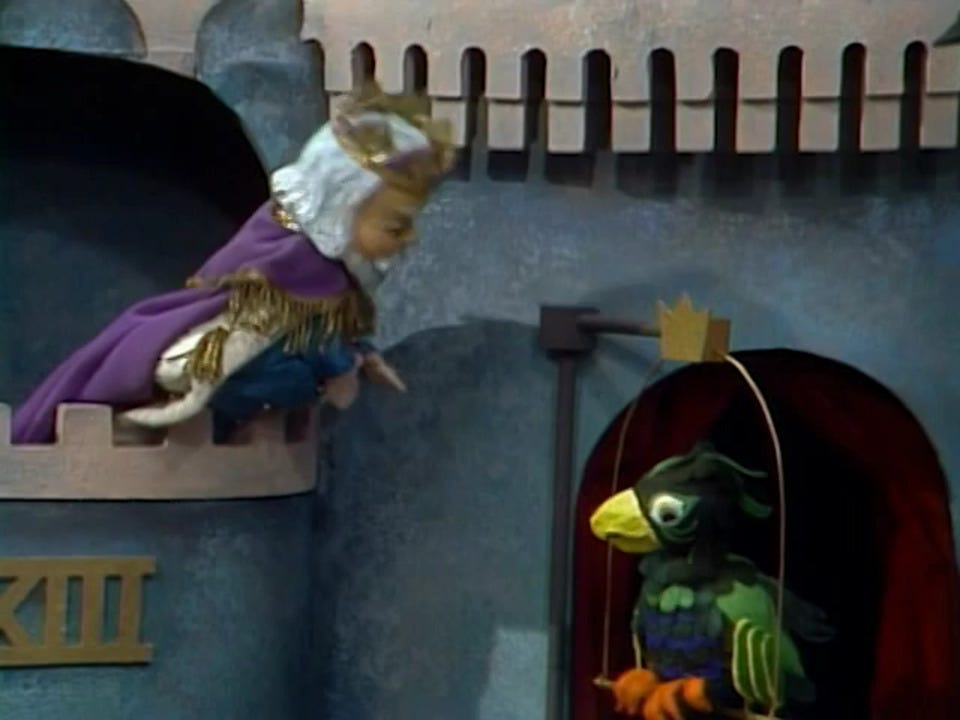

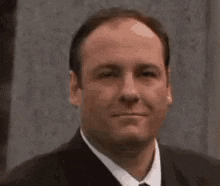
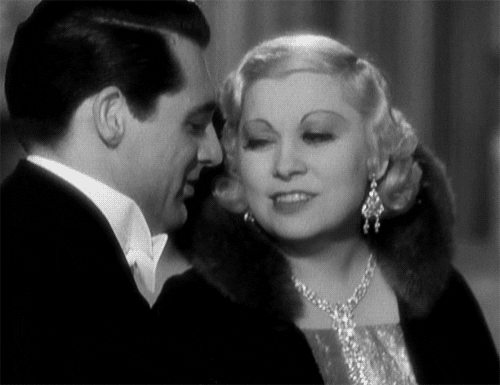
This had me constantly rewinding to “what did media used to be like?” as I read it, and mainly made me think of how often I’ve tried to explain Xena: Warrior Princess to people who are too young to have watched it. She was a hero who’d previously been a villain, so her entire story was about earning redemption, and that’s a quest she never believed would have an end. There were Dark Xena episodes (because of course, it was the kind of campy show that needs to let the lead vamp now and then), but the goal was always “we need to help her get back to Good Xena” because the assumption was always that she does not truly like being evil. And meanwhile she was anything but boring.
The clearest example I can think of what you're talking about is The West Wing vs House of Cards. One is hopelessly naive, the other hopelessly cynical. But our 21st century brains somehow accept House of Cards more easily. It isn't "more realistic", it isn't "better written", we just somehow mistook edginess for merit.